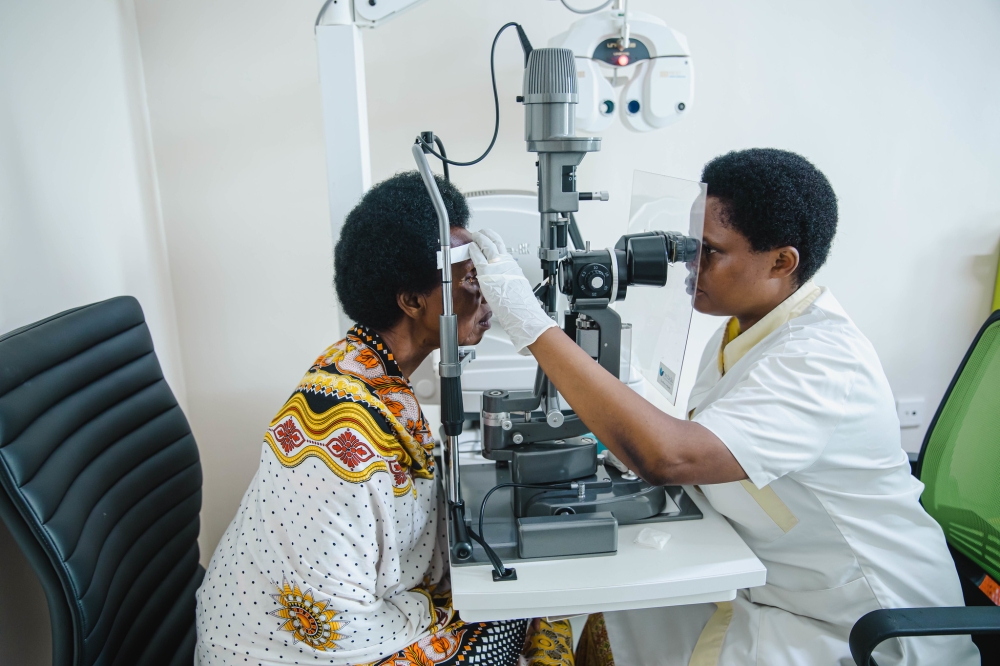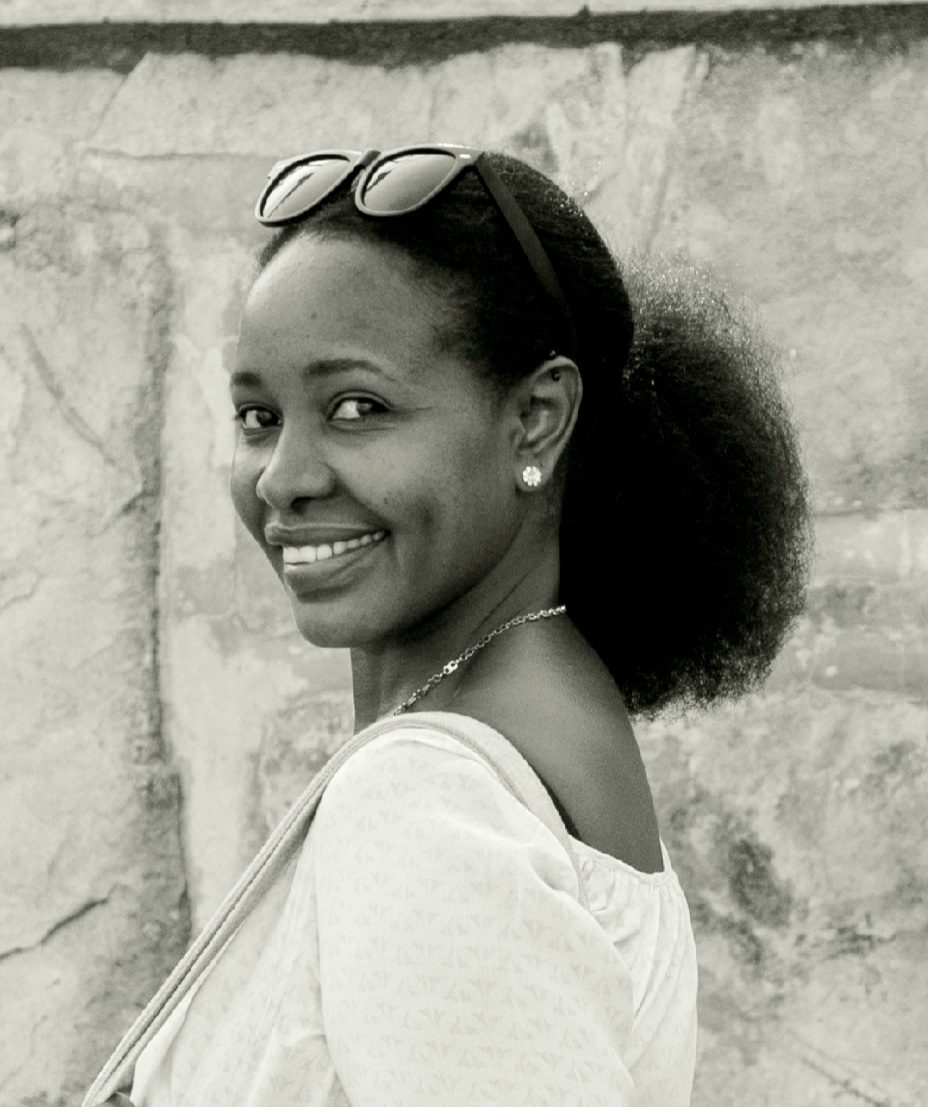

Chances today are that if you walk into a health facility, you will be received by a female receptionist who will take your details, a female nurse at triage to do preliminary assessments, and perhaps, a female doctor to consult.
Over the past 30 years, women have played a pivotal role in the growth, development, and sustainability of Rwanda’s health sector, with the majority of the caregivers, right from the grassroots, beginning with community health workers, being female.
As Rwanda joined the rest of the world to mark International Women’s Day (IWD 2024), on March 8, President Kagame took time to reflect on the contribution of women to the development of the country, in different sectors where they serve.
One such area that has seen women play a crucial role in rebuilding is the health sector. The Ministry of Gender and Family Promotion (MIGEPROF) used IWD as an opportunity to highlight the contribution of women to Rwanda’s healthcare system, reflecting on the gains over the past three decades.
"The surge of female doctors and health specialists signifies impressive strides in healthcare,” the Ministry said on its social media platforms.
"Their increasing number reflects a commitment to enhancing accessibility and quality and has boosted maternal and child care services, reducing deaths, improving the well-being of mothers and children,” it added.
According to the National Institute of Statistics of Rwanda (NISR), women make up the majority of civil servants in Rwanda’s healthcare industry.
More women but fewer specialists
More than half of workers in health centres in the country are women, representing 58.6 per cent, according to the latest findings published in an official report on gender statistics highlighting the gender equality and development issue.
It is a statistic that looks very good at the bottom, where women occupy lower-ranking jobs but become few and far at the top where you find specialist doctors.
"Nevertheless, official statistics show that 87.6 per cent of specialist doctors in Rwanda’s public sector are men while women account for only 12.4 per cent in the same category,” NISR said in a recent article on gender statistics.
According to the findings, in general, female nurses outnumber male nurses with the proportion estimated at 58.6 per cent within all health centres across the country.
"In Rwanda, female medical doctors, health professionals, and specialists have increased in numbers and have significantly contributed to the country’s health system,” the statistics body said in its summary.
What is even more impressive is that women healthcare workers occupy the most key positions, much as they could be lower ranking, but they serve in places that allow them to deal directly with the citizens.
According to MIGEPROF, women are directly behind the country’s gains in improving access to maternal and childcare services and reducing maternal deaths. This is mainly so because often, it will be women taking care of fellow women along the way.
It is a call women answered graciously, right from the time the country was rebuilding from the ruins of the 1994 Genocide against the Tutsi, with women embracing the bona fide role as counsellors and caregivers, albeit with limited resources.
As President Kagame pointed out during the celebrations, women played a minimal role in the killings that claimed over one million people, and even those who did were misled by men.
But in the post-genocide rebuilding, it is the women who were at the forefront of not only comforting people but also working hard to take care of the injured, abused, or dejected orphans.
As community health workers at the grassroots, women have been instrumental in efforts to prevent and treat the killers of pregnant women, and children under five such as malaria, pneumonia, and diarrhoea, among others.
Committed women
Rose Kankindi Gahire, co-founder of Rwanda Palliative Care Association, is one of the many women who have been playing a key role in the country’s health sector since 1998 when she joined public health.
Gahire’s story is one of resilience, sacrifice, and venturing which many people would fear at the time, to extend a helping hand in society, especially to those in pain, or people whose lives are impacted by non-communicable diseases.
As the Executive Secretary for the Society for Women against AIDS in Africa (SWAA) between 1998 and 2006, Gahire has been among the women who have been at the core of health care, particularly by advocating for improved patient care.
At the time, there was little or no care, especially for HIV/AIDS patients, who would mostly be written off, left to die in pain or be dejected, with their situation compounded by stereotypes and misconceptions.
Over the years, Gahire and other women worked hard to change people’s perceptions of certain diseases and also put the spotlight on the need for palliative care services accessed by all.
"I think one of my contributions is my commitment to work first, which I believe has positively impacted countless patients in the country, and colleagues whom I have worked with for a long time.
"I have been an advocate for patient-centred care for a long time. Our work has been to ensure that patients get the best possible treatment and support. I have also mentored many people along the way,” Gahire said.
Over the years, Gahire was involved in policy and decision-making processes in the health sector and also tried her best to mentor younger people along the way, to contribute to the growth and development of the sector.
Juggling work and life
Gahire reckons that women in healthcare do more than just service, they also sacrifice themselves because the majority of them have to go back home to take care of family business.
"For many of the women in healthcare, work-life balance is a challenge. Most women in the health sector also have duties and responsibilities to take care of their families, they work long hours and their jobs are demanding in nature,” she said.
Gahire added that balancing between shifts and many hours on duty affects how women deliver but they still deliver. One of the challenges is also a lack of mentorship and support.
"There is no personal growth and development for women in the sector because many will just be nurses, yet they can receive more training and education to improve their careers,” Gahire said, calling for more efforts to train and equip women.
The other challenge she cited is a hostile work environment, which can be characterised by sexual harassment and other forms of abuse they encounter at work.
It could be a co-worker, patient, or supervisor, but Gahire said these are things women in the health sector face, but sometimes go unspoken.
"We need to create spaces where women and girls, as well as men, can come together and discuss intergenerational approaches that break the biases and stereotypes that portray women as being unable to deliver,” Gahire said.
Women are capable, more need to fill gaps
Dr Odile Murekatete, a senior gynaecologist who has been serving for the past 12 years, is also calling for greater efforts to train and empower more women in healthcare.
Murekatete, who is currently working with King Faisal Hospital, said women are capable just like men and well positioned to provide improved healthcare services.
"Women are known to be more emotional, so they pay attention to someone’s pain,” she said, adding that having more women health practitioners would greatly contribute in detecting and treating conditions, more so, among women, who would be the first beneficiaries.
"I also believe it is hard for a woman to consult a male doctor when there is an option of a female doctor unless it is an emergency like giving birth. Naturally, women feel comfortable consulting with a fellow woman,” Murekatete said.
In her line of work, Murekatete said most times women become reluctant knowing that they cannot fully and comfortably confide in a man on very delicate health matters.
The reluctance deprives the opportunity for early detection and treatment, which is why there is a need for more female doctors in hospitals.
"Currently the number remains relatively low but if we had more female doctors, most diseases, especially those affecting women and children, would be prevented,” she said.
Most times, female patients prefer female doctors or nurses because they share the same experiences and challenges as women, and it is easier to share this information with a woman than a man.
"Women don’t normally feel shy before fellow women because it is woman-to-woman,” Murekatete said, citing certain diseases and cases of sexual assault such as rape, as examples of things that make women feel uncomfortable to share with male health workers.
"A good example is a woman who has been raped but they are received by a doctor who is not of the same sex. It traumatises them,” she said, calling for a need to have more female doctors and health workers to help fill the gap.
"This would go a long way in improving the quality of life for women in particular and society at large,” Murekatete, who holds a Master of Medicine in Obstetrics and Gynaecology, said.
Murekatete, who is also a fellow in gynaecological oncology, advocates for more training and inclusion of women and girls in the health sector, as one of the sure ways to improve healthcare.
For many women in health like Dr Olive Mukeshimana, a doctor at Kibagabaga Hospital, it is the passion and not the money that has kept them in service, and the desire to see change.
"I have been working in the health sector for the past decade and a half and I love it here. I normally receive patients in extreme pain and I conduct a holistic assessment to find a solution to their condition.
"That is what I love most about my job, seeing people heal and recover. I know the salary is not as good as it is in some sectors. We have seen some of our colleagues swap the white coat for other jobs but that is not what I desire,” Mukeshimana said.
In her IWD 2024 message, the World Health Organisation (WHO), Regional Director for Africa, Dr Matshidiso Moeti, recognised the contribution of women to health.
She pointed out that they will continue to push the gender agenda in healthcare, in line with this year’s theme "Invest in women: Accelerate Progress,” to resound the message that women are equal partners with men in all aspects of healthcare.
One of the things she pointed out is that women should be entrusted with leadership positions based on their performance, rather than remaining stagnant in one place, as well as building a health sector where women live without discrimination, harassment, and violence.


